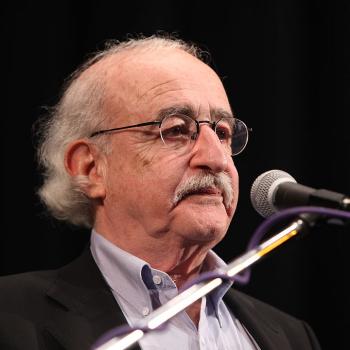Therefore every individual, conscious of his responsibility as a member of Christian and Western civilization, must defend himself against the scourges of mankind, against fascism and any similar system of totalitarianism. Offer passive resistance—resistance—wherever you may be, forestall the spread of this atheistic war machine before it is too late, before the last cities, like Cologne, have been reduced to rubble, and before the nation’s last young man has given his blood on some battlefield for the hubris of a sub-human. Do not forget that every people deserves the regime it is willing to endure. – The First Leaflet of the White Rose

A multitude of factors have the nexus of nationalism, its ethnic equivalents, and religion on my mind of late. From the slough of articles placing Catholicism alongside Trumpism to a recent mass endorsement of Ted Cruz by major Catholic Americans (including Robert George, Ryan Anderson, and Bradley Birzer), the intersection has become difficult to ignore. But the impetus for this article actually doesn’t come from the quasi-cataclysmic American political landscape; no, in fact, my recent foray into Byzantine Catholicism has reminded me of the danger of phyletism.
It’s a common criticism Catholics lob at the Orthodox: they’re ethnocentric, easily coopted by the state, and generally less universal. The Russian Church is making this argument easier and easier, and admittedly, the Orthodox Church in America itself has expressed concerns about intermarriage that one is more likely to associate with Orthodox Judaism than any orthodox branch of Christianity. While I don’t fully endorse these views, I have found something of this sort among my fellow Byzantines (admittedly, mostly on the internet). Centuries of oppression at the hands of Latins have made many defensive, angry, and, frankly, at times, disdainful of their brethren.
Indeed, the list of Latin transgressions against Byzantines is almost too long to recount: forced Latinizations of the liturgy, the story about Pope Pius IX placing his foot on the head of the Melkite Patriarch, and the infamous Bishop Ireland. But what has replaced it, on my view, is too often an embittered resistance to all things Latin.
Take for example, a discussion I had recently about whether Byzantine infants can receive Communion at a Latin Church (the Byzantines first give the Eucharist upon Baptism). The answer is, without question, yes. Of course, because many Latins are unaware of the existence, let alone the practices, of their Eastern brethren, many priests are ignorant of this requirement. In attempted charity, my stance was just that: one of assumed ignorance. If a Latin priest refuses to Commune the child, assume he is doing so out of love for our Lord and fear of desecration of the Eucharist; at worst, this calls for a gentle and brotherly rebuke, with canonical action taken only if necessary. My status as a canonical Latin speaking to Byzantines did not make my position any more secure (though it is precisely my love of Byzantine traditions that led me to attend such a church!). Others were, to say the least, less sanguine about Latin Catholics’ reasons; they assumed their Western brothers and sisters disdained them and that many would refuse based on this prejudice alone. I sympathize with their feelings of alienation and mistreatment, but I cannot but object to their meeting past enmity with renewed suspicion.













